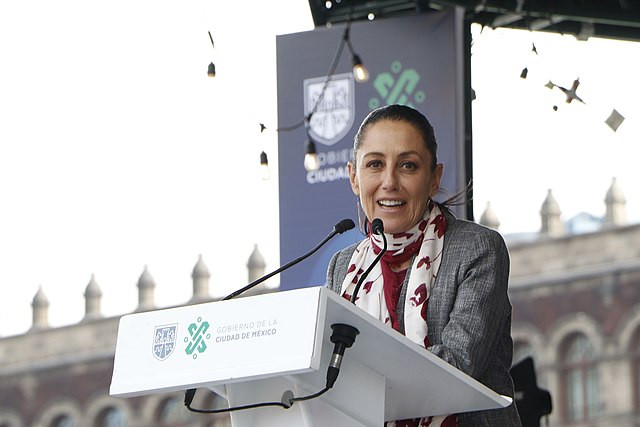The Mexican government has rejected a request from Ukraine to detain Russian President Vladimir Putin if he attends the inauguration of Mexico's next president, Claudia Sheinbaum, on October 1. The request, which came amid escalating tensions and ongoing conflicts involving Russia and Ukraine, was firmly turned down by Mexican President Andres Manuel Lopez Obrador.
"We can't do that," Lopez Obrador stated during a routine press conference. "It's not up to us."
Ukraine's embassy in Mexico had issued a statement on August 7, urging the Mexican government to comply with an arrest warrant issued by the International Criminal Court (ICC) for Putin. The warrant, issued last year, accuses Putin of war crimes, specifically the illegal deportation of hundreds of Ukrainian children to Russia following the invasion of Ukraine in early 2022.
"We hope the Mexican government is aware that Vladimir Putin is a war criminal with an arrest warrant against him," the Ukrainian embassy declared. The embassy also expressed confidence that Mexico would fulfill its international obligations, considering that Mexico is a member of the ICC, unlike Russia.
The arrest warrant issued by the ICC represents a significant international effort to hold Putin accountable for actions taken during the conflict in Ukraine. Despite this, Lopez Obrador's administration has chosen not to act on the warrant if Putin were to visit Mexico, a move that underscores Mexico's diplomatic balancing act between its international commitments and its relationships with various global powers.
Claudia Sheinbaum, who will become Mexico's first female president, has extended invitations to several world leaders for her inauguration, including both Putin and Ukrainian President Volodymyr Zelensky. This move is part of a "standard protocol" to invite leaders from all countries with which Mexico maintains diplomatic relations, according to Juan Ramon de la Fuente, who has been selected as Sheinbaum's foreign minister.
The diplomatic tightrope that Mexico is walking was further illustrated when Sheinbaum received congratulatory messages from both Putin and Zelensky following her election victory. Putin, in his message, referred to Mexico as a "historically friendly partner" of Russia in Latin America, highlighting the complex and multifaceted nature of Mexico's international relations.
The situation is further complicated by the strengthened ties between Mexico and Russia in recent years. Despite Mexico being a signatory to the ICC, which mandates compliance with its rulings and warrants, the Mexican government appears to be prioritizing its diplomatic relationships over the enforcement of the ICC's arrest warrant against Putin.
This decision has drawn criticism from various quarters, with some viewing it as a failure to uphold international justice and accountability. However, it also reflects the pragmatic considerations that often influence international diplomacy, where strategic interests and diplomatic relations can sometimes take precedence over legal and ethical imperatives.
As Mexico prepares for the inauguration of its new president, the controversy surrounding the potential visit of Vladimir Putin and the Ukrainian request for his arrest serves as a reminder of the intricate and often contentious dynamics that characterize international politics. The outcome of this situation will likely have implications not only for Mexico's foreign relations but also for the broader geopolitical landscape, particularly in the context of the ongoing conflict in Ukraine.






